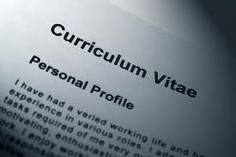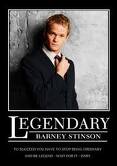I Want a New Career But I Don’t Know What To Do!
Are you like so many other people, who are in the wrong job? Or are you ready for a career change? Do you want a new career but you don’t know what you can do? Then you will want to read this article which will in 9 easy steps help you great a carer idea you will love, then all you need to do is learn the secrets of employment and secure more job offers then ever before.
First read each of the nine steps before returning to step one to start your journey to finding your new career.
- Job Titles are for losers from working with hundreds of career hopefuls, I have realised the biggest barrier to finding you a perfect career is Job Titles. Job hunters will often say “I Don’t want to be a doctor (or any other job title)” “I have though about working in Media (or any career sector) but it’s not really me” if you knew what job title you wanted you would be job searching by now, if your unsure on your career ideas start by thinking about your likes and dislikes and for now ignore all the job titles as they limit so many people – you have to remember there are thousands of job roles out their, it’s like looking for a career needle and a job sector haystack.
- List Your Likes and Values start by looking at everything you value and like in a perfect career, this could be hours, respect, promotional opportunity, personal development, fulfilment or money. Make your list big at least 20-30 elements. Once you have record your “wants” put them in order of importance by asking would I prefer a job role with Criteria A or Criteria B? Work through your list in this way.
- List Your Don’t Want’s now you have a list of your wants, record a list of your dislikes, what don’t you want in a career? You may record criteria’s as such as; more then an hours travel, working in a noisy environment, no personal devolvement, a manager who doesn’t offer support, etc. go through your list and ask yourself, if I was offered a job with 3-5 of my wants and this one “don’t want” criteria would I accept the job offer? Ask this for all your “don’t want” criteria as this will let you know how important your Don’t Want criteria list is to you.
- Where is your best working environment? Next think about where you work best, do you work best in groups or alone? Do need a quite place of work or do prefer to work in a noisy environment? What environment most motivates you, indoors or outdoors? In city or in the country? Do want a job where you visit different places of work or working destinations or do you want to work at the same venue day in and day out? Upmarket venues or downtown places? Where is your ideal place of work?
- If you could do anything what would you do? Imagine you lived in a magical world, where you can choice any career you wanted and it didn’t matter about your qualifications, experiences and every salary was the same. All you needed to do is pick any career and you could start tomorrow – without thinking about your ideal career what job has just popped into your head?
- Can the future you give you advice? Imagine for what ever reason, the next twelve month work out for the best, every choice you make is the best choice, every goal you set you achieve, you pass every job interview and you’re the happiest you have ever been. Imagine you can see a picture of you in twelve months time, what are you doing? Do you look happy? Do you look healthy, where are you working? Imagine you are this future you looking back down your time line to the version of you reading this article, what advice would this future you give the you now?
- What steps did the future you, take? As you look at your timeline you can see yourself in twelve months time, with you being at your best. Look down your time line and see yourself in 9 months time, what are you doing? What are you doing to get to that great place you are at in the twelve month? Look at your self at 6 months, and see what you are doing before you become the person at month 9. do the same at 6 months and 3 months see yourself on your timeline and become aware of all the steps this future you is taking to become the perfect you in twelve months and remember everything in the next twelve months will work out for the best, so if you see any negative images delete them and redesign your own image, your own future.
- Make a plan. Now you have viewed your timeline and this future you, take the 4 images from the timeline and make 3 actions for each of the 4 stages. What do you need to do by month 3, month 6, month 9 and month 12. How do you need to feel, how should you act? Which task should you complete? What task should you complete first? What should you say to yourself each day to keep yourself motivated?
- Get a date. For each action, record a “to do by” date, the idea here if that you have 3 or more actions to complete by 3 months, 3 more actions by 6 months, 3 more by 9 months and a final 3 or more actions to be completed by 12 months. By this time you will be well on your way to a new life, a new career and a new future.
If you enjoyed reading this article you will also enjoy reading


















